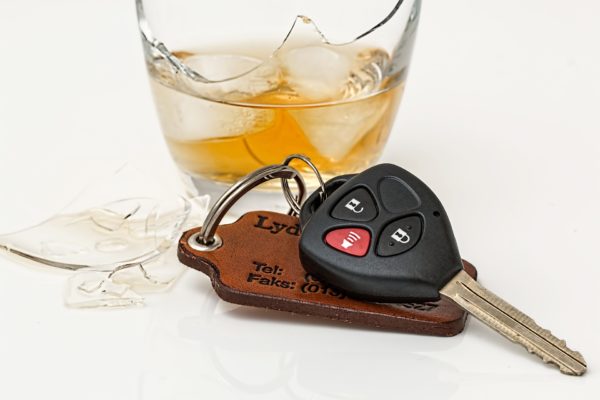FAQs
How do I beat a DUI / Impaired?
DUI is a common term that refers to impaired driving, driving over 0.08 and refusing to provide a sample of breath. Each of these offences carry mandatory minimum punishments including fines and license suspensions.
There is a common misconception that there are no defenses when charged with a DUI offence. The reality is that there are more defenses in impaired driving law than almost any other area of criminal law. DUI law is a highly technical and complex area of law in which much of the investigation is inevitably conducted at the side of a road under less than ideal conditions. These conditions often lead to incomplete and improper investigations which translate into defenses for an accused, regardless of their blood alcohol level.
While there is no exhaustive list of ways to beat one of the DUI offences, the following are common defenses:
Identification
If the police did not find the driver of the vehicle behind the steering wheel, the Crown Prosecutor may be unable to prove beyond a reasonable doubt that the person charged was the person who committed the offence. This defence typically arises in situations where there has been a car accident and the driver has left the driver’s seat or where the driver reached his or her destination and exited the vehicle. The mere fact of vehicle ownership in and of itself has no probative value with regard to the identity of the driver.
Reasonable and Probable Grounds
Despite the availability of an Approved Screening Device, police officers often rush to arrest an individual at the roadside without the required grounds to do so. A police officer must have reasonable and probable grounds for believing that the individual was driving or had care and control of the vehicle while impaired and that the driving occurred within the previous three hours. Without the required grounds, the arrest and subsequent seizure of sample of breath is illegal and the breath samples may be excluded from evidence.
Right to Counsel
A person’s right to counsel as guaranteed by section 10(b) of the Charter of Rights and Freedoms must be respected before breathalyzer testing takes place. The law requires a police officer to inform an accused immediately upon arrest or detention of his or her right to consult counsel without delay. An accused must also be afforded a reasonable opportunity to exercise the right to retain and instruct counsel. During this period of time, the police officer must cease questioning the accused or otherwise eliciting evidence.
Though this constitutional right appears to be very straight-forward, police often fail to properly inform an accused of this right or fail to provide a reasonable opportunity to contact counsel.

Many police officers pressure an accused to call legal aid rather than counsel of choice. Even when an accused declines to contact counsel, triable issues may arise as to what exactly an accused said to the police officer. If a section 10(b) breach can be made out, it is likely that breath samples will be excluded from evidence.
Breath Demand
Prior to an accused providing police with a sample of breath, the officer must read a proper breath demand. For it to be a proper demand, the officer must have formed the required reasonable grounds and resulting belief that the offence occurred in the previous three hours. The demand must also be properly read to an accused.
If the officer did not have the required grounds to read the demand, the Crown will have no likelihood of conviction. Police officer also confuse a roadside breath demand with a breathalyzer demand. When an officer reads the wrong demand, breath samples are taken unlawfully and will likely be excluded. The demand must also be made “as soon as practicable” after forming the requisite belief on reasonable and probable grounds. If the officers delays reading the demand, the demand may be invalid and samples of breath will likely be excluded from evidence.
Screening Device Demand
In order to obtain a sample of breath at the roadside for screening purposes, a police officer must read a valid demand. In order for the demand to be valid, the officer must suspect that the accused has alcohol in their body and that they operated a motor vehicle within the previous three hours. The officer must then demand that the accused “forthwith” provide a sample into an Approved Screening Device (ASD).
Many issues arise out of the use of an ASD that provide defenses at trial such as whether the unit was properly calibrated and tested, whether the officer was trained on the unit, location of the unit and time between demand and providing of a sample and whether the officer’s suspicion that alcohol in the accused’s body was reasonable.
Intoxilyzer Maintenance
If evidence exists that the Intoxilyzer machine was malfunctioning or not properly maintained, the blood alcohol readings may be found unreliable and excluded as evidence.
Arbitrary Detention
Section 9 of the Charter of Rights and Freedoms guarantees the right not to be arbitrarily detained or imprisoned. In impaired driving situations, arbitrary detention can occur at any stage if the police officer has no grounds to arrest an accused. Far too often, police officers, with good intentions, detain an accused for many hours after he or she has provided samples of breath to “sober up” before they are released. With very few exceptions, detaining a person when they are otherwise releasable is an arbitrary detention. When this occurs, arguments can be made for exclusion of breath samples or a stay of proceedings.
About Cory Wilson

Cory has represented individuals from all walks of life including lawyers, police officers, athletes, corporate executives, teachers, and everything in between. Cory believes in access to justice for every person charged with a criminal offence regardless of their economic background.